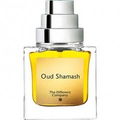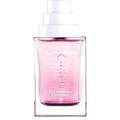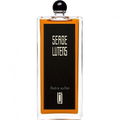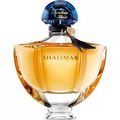‘Rose poivrée’ was the first fragrance I acquired from the small but very fine ‘Differnt Company’. Others like ‘Osmanthus’, ‘Bois d'Iris’, and ‘Sel de Vetiver’ were to follow, but for several years now, essentially since Celine Ellena took over the legacy of her father Jean-Claude, who moved to Hermès, none of the newer creations have truly convinced me. Not that the fragrances she developed are uninspired or poorly made, no, but with her appointment as the house perfumer of TDC, the style of the house has changed in a way that does not resonate with me. Her father was already on the path of reducing strong (olfactory) colors in number and intensity, following a self-imposed minimalist mandate to give individual notes more space to showcase their inherent richness of facets. And so, the first four fragrances launched by TDC exemplarily attest to Jean-Claude Ellena's efforts toward reduction: he groups a manageable number of additional notes around a central note (Rose, Osmanthus, Iris, and Bergamot) that highlight, intensify, and lead in a different, sometimes surprising direction. In this way, seemingly simply structured soliflore fragrances emerge, yet even the first sniff of them hints at how even significantly reduced formulas can possess complexity and finesse. Particularly with his works created around the same time for Frédéric Malle and ‘The Different Company’, as well as those he has composed for Hermès since then, Jean-Claude Ellena demonstrates that he has achieved a certain mastery in striving for minimalism, combined with great artistry and a sense of delicacy, much like his teacher Edmond Roudnitska - I count the four fragrances created for TDC among his best.
Now Celine Ellena has adopted her father's approach - which is certainly not a mistake - but she no longer uses oil paints, not even for any kind of main note, but only watercolor paints (setting aside her ‘Sel de Vetiver’ and ‘Jasmin de Nuit’, which she presumably inherited from her father as more or less finished fragrance concepts). Thus, she paints delicate forms and gives them old-fashioned names like ‘Charmes et Feuilles’, or clunky ones like ‘Sublime Balkiss’. It's all quite nice, but primarily harmless and not really exciting.
The comparison with ‘Rose poivrée’ (I am referring to the old version) clearly shows this discrepancy: here a richly blooming rose in vibrant colors, with light green and spicy accents, surrounded by a mouth-watering animalistic aura (which I will return to elsewhere), and there a finely structured, rather colorless sketch of various uninspired assembled parts that do not seem to relate to each other at all.
Or, to choose another comparison: the chamber music works of Mr. Ellena senior, whether one finds them lacking in substance or not (I am more a fan of larger dimensioned symphonies), usually have a comprehensible idea behind them, culminating in a beautiful and memorable melody. They radiate great concentration, and the individual voices are perfectly balanced. The works of Ms. Ellena junior, on the other hand, are anything but concentrated, rather clumsy and diffuse, jumping here and there without a clear direction.
‘Rose poivrée’ is, in any case, a truly beautiful chamber music work, more precisely - a string quintet: the rose as the first violin, pepper as the second, coriander and vetiver play the violas, and finally civet the cello.
When the fragrance was launched a few years ago, the community of those who bent over the latest works with a supposed expert eye or nose was strangely divided. Some believed they recognized a great, very delicate, and unsweetened rose perfume with a seductive animalistic aura, while others, writhing in disgust, felt reminded of the smell of worn men's underwear.
It will surely not be surprising that I belonged to the former group. Yes, it amazed me every time how one could associate this wonderful fragrance with something unpleasant, even stinky - I could not perceive any of that, no matter how hard I tried. On the contrary: I suspect that exactly what others perceive as foul stench pleases my olfactory receptors much more than it disturbs - I love it when fragrances have a certain ‘flavor’, an aura of disreputability. That makes them interesting and often - not always - desirable. ‘Rose poivrée’ had just such an aura: a spicy rose, along with its green foliage, enveloped in a coat of frivolously enticing civet.
Others may be repelled by this aura, but I am drawn to it like a magnet. However, it seems I belong to a minority, as after Jean-Claude Ellena left the company and passed the baton to his daughter, the fragrance was significantly altered in terms of animalistic-erotic vibes: they were reduced to a minimum, making the fragrance more mass-appealing and not overly taxing on the consumer's nose.
What a pity, a great pity!
‘Rose poivrée’ was a bold fragrance that would have found a loyal fan base over time, albeit a small one, had it not been tamed much too early, and in my opinion unnecessarily. However, the manufacturer evidently lost their courage, for having such a fragrance in the portfolio means: standing by it despite all the criticism - provided, of course, one is convinced of its quality.
And cowardice presents itself to us in ‘Rose poivrée’ today: a beautiful, finely spiced rose in a neatly tidied and sterilized environment: far and wide no bed ruffled by desire and passion, just the last button of the not quite buttoned shirt, or blouse, revealing a glimpse of the still glowing skin of sensual longing - nothing more.
As I said: what a pity.
The new fragrance is beautiful, but harmless.
The old one was beautiful and exciting!







 Top Notes
Top Notes  Black pepper
Black pepper Coriander
Coriander Pink pepper
Pink pepper Heart Notes
Heart Notes  Damask rose
Damask rose Rosa centifolia
Rosa centifolia Base Notes
Base Notes  Civet
Civet Vetiver
Vetiver







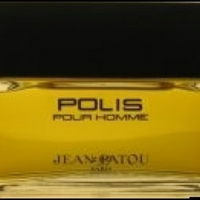



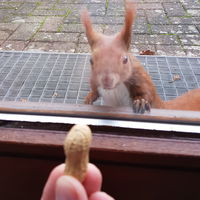

 Yatagan
Yatagan Lovis
Lovis Birkenteer
Birkenteer Parma
Parma Schallhoerer
Schallhoerer Katt007
Katt007 Dreizehnte
Dreizehnte Saemm
Saemm Gschpusi
Gschpusi Melony
Melony